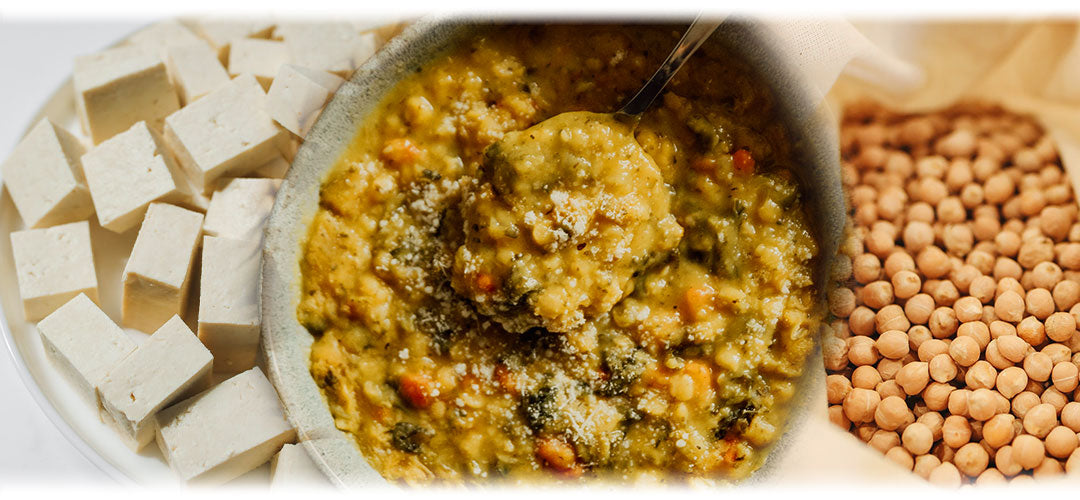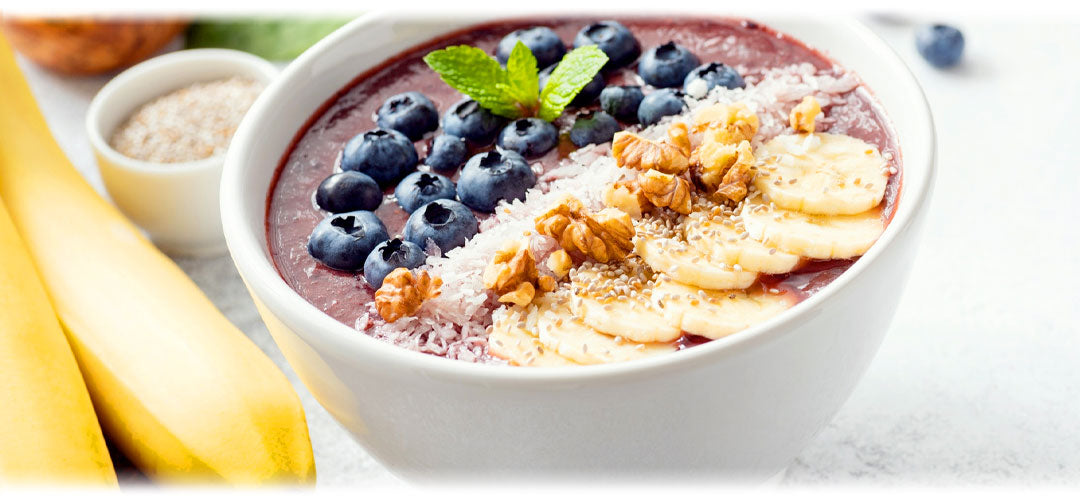
Protein is a key component of a balanced diet that promotes muscle growth and burns fat, helping you maintain a healthy body composition.
It is the building block of growth, which supports muscle recovery after physical exercise and enhances the build-up of lean muscle mass.
It is used to build and repair tissue and create the enzymes, hormones and other chemicals your body needs to grow. It also helps you to maintain healthy skin, hair and fingernails.
• There are three types of protein
Fibrous protein works to form muscle fibres, tendons, connective tissue and bone.
Globular protein has functions such as transporting, catalysing and regulating tissue.
Membrane protein plays several roles, such as allowing cells to interact and relaying signals within and between them.
Many people presume the best way to get protein is from animal-based sources. However, this is not the case. There is a whole array of plant-based protein sources for those who don’t include meat in their diet.

• What does the body use protein for?
Protein plays many roles in improving the function of your body. It helps build tissue and allows metabolic reactions to occur. It also helps keep your immune system strong and stores nutrients that can act as an energy source. Its other important functions include:

• What are the benefits of plant-based nutrition?
People who follow a plant-based diet tend to have lower blood pressure than those who regularly eat animal products. Fruit and vegetables are rich in potassium which helps lower blood pressure. Plant-based foods also tend to be lower in fat and sodium and also don’t contain any cholesterol. This helps to reduce the blood’s viscosity, which makes it easier to pump around the body.
Linked to the above, as plant-based foods can help thin the blood and lower blood pressure, this places less strain on the heart and circulatory system. And because there are fewer fatty deposits in the blood from unsaturated animal fats and cholesterol, blood vessels don’t get clogged up as much. Fruits and vegetables also contain more vitamins and minerals that promote good heart health.
Plant-based foods are usually higher in natural antioxidants than animal-based ingredients, which can help improve immunity, fight infection and reduce the toxic activity in the body which can lead to a host of chronic conditions over the long-term, such as heart disease and stroke.
Numerous scientific studies have found that people who follow plant-based diets have a lower risk of developing Type 2 Diabetes.Those following a completely vegan diet have the lowest risk, although those following a vegetarian diet that also includes eggs and dairy products are at lower risk than meat-eaters. Research has also found that plant-based diets can help improve insulin sensitivity and reduce insulin resistance.
Plant-based ingredients have been found to boost cognitive function, improve brain power and enhance mental wellbeing.
That’s because fruits and vegetables are rich in polyphenols, natural antioxidants that help prevent or slow the damage that harmful free radicals do to brain cells.
Polyphenols may also help to slow the progression of Alzheimer’s.
• The three best plant-based proteins
Plant-based protein comes from a wide range of sources, and each has its own nutritional benefits.Regardless of whether you follow a vegetarian or vegan lifestyle, mixing up your protein intake with several different types of plant-based protein will help you get a wider array of nutrients into your diet. In our opinion, the three best plant-based protein sources are:
• Our favourite plant-based protein supplements
Lily & Loaf’s Chocolate & Hazelnut Pea Protein Powder is a delicious premium protein supplement made from a specially formulated blend of pea protein isolate and essential amino acids, with added vitamins and minerals. It has been specially formulated to support your lifestyle goals by delivering 16.5g of high-quality plant-based protein with every serving.
Lily & Loaf’s Soya Protein Powder, is a delicious supplement designed to support optimal health and vitality. With a range of four delicious flavours to choose from each serving contains 21g of easily digestible soy protein. Unlike some plant proteins, Soy protein is a source of all eight essential amino acids. Alongside protein, this formula includes 15 essential vitamins and minerals to support normal energy levels and promote good health.

• How can you use plant-based protein supplements?
Our nutritional protein supplements provide a perfect way of complementing your daily intake of protein to ensure you are getting the right amount of high-quality protein as part of a balanced diet. Add them to a breakfast shake to start your day the right way, or use our Red Berry Protein Powder for an evening treat while still getting the protein you need.
Exercise and eating well remain the cornerstone of health and wellbeing. Our protein supplements can be used as part of a healthy lifestyle plan to support your exercise goals, whether you are looking to manage your weight, build muscle or improve your general health.
They make an ideal high-protein snack or meal replacement, providing a high-quality natural protein source to help you achieve your goals.
Check out these links to product and collection pages to find out more:
- Hair & Beauty
- Plant-based Protein Sources
- Immune Support
- High Strength Collagen
- Lily & Loaf Chocolate & Hazelnut Pea Protein
- Lily & Loaf Soya Protein
Disclaimer:
Information and other content provided in Lily & Loaf blogs should not be construed as medical advice and should not be considered a substitute for professional medical expertise. If you have any medical concerns, you should consult with your health care provider.


